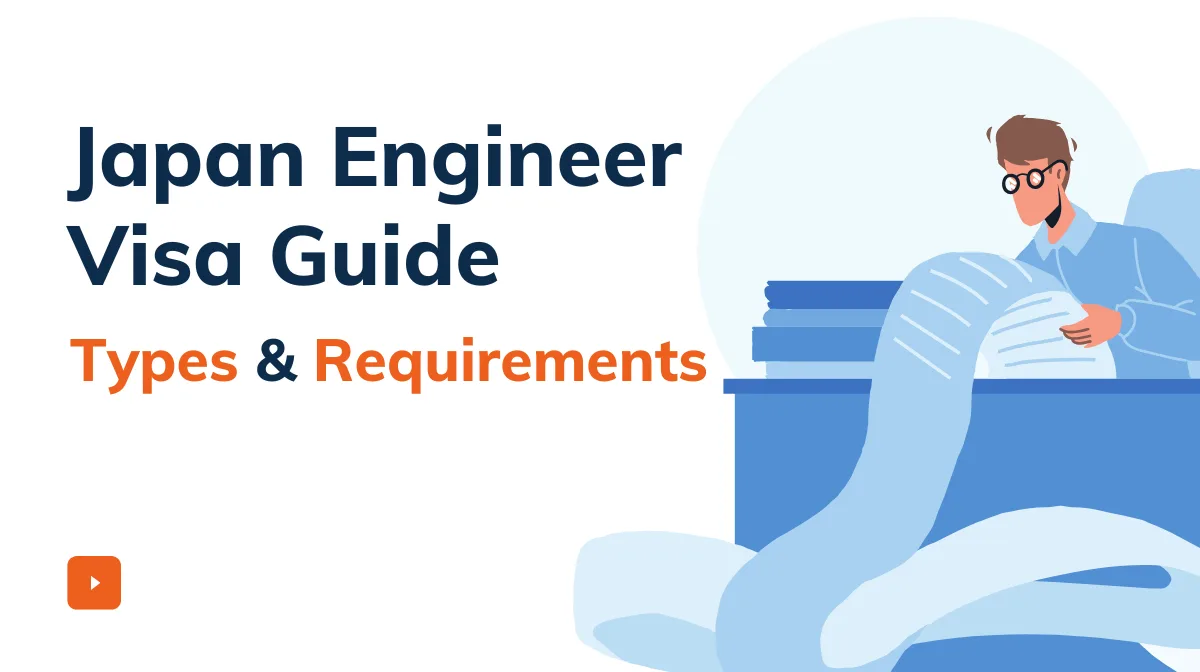Japan’s IT industry is experiencing a massive talent shortage, creating unprecedented opportunities for foreign software engineers. The 2025 problem and digital transformation have shifted hiring toward technical skills over language requirements.
- Which tech roles offer easiest entry for foreign engineers.
- How Japanese level impacts career opportunities and salaries.
- Essential strategies for Japanese corporate culture success.
1. Japan’s Software Engineer Market Today
Japan’s tech industry is transforming rapidly. A critical shortage of 790,000 IT professionals by 2030 has shifted hiring from cultural fit to pure technical merit—a game-changer for foreign engineers.
The 2025 Problem: Your Opportunity
The “2025 Problem” refers to aging enterprise systems from the 1990s-2000s that need urgent modernization. Companies lack the expertise to maintain these legacy systems, driving massive demand for engineers with modern skills.
Japanese companies are actively hiring foreign talent, often creating dedicated hiring tracks. Since this shortage stems from demographic factors, demand will remain strong long-term.
Language Requirements Have Relaxed
Previously, JLPT N1 was often mandatory. Not anymore. Companies now prioritize technical skills, and since much technical communication happens in English, you can succeed without advanced Japanese.
Current Trends
- N3-N2 Japanese sufficient for technical roles
- English documentation skills highly valued
- Remote work reducing language barriers
DX Push Favors Foreign Engineers
Japan’s Digital Transformation initiative prioritizes technical skills and innovation over traditional seniority. Your international experience and knowledge of overseas tech trends are exactly what companies need.
Most In-Demand Skills
- Cloud-native development (AWS, Azure, GCP)
- Microservices architecture
- DevOps/CI/CD
- Machine learning
- Agile methodologies
2. Your Software Engineer Career Path Strategy
Japanese tech careers follow different patterns than Western markets. Understanding these paths and leveraging your international background strategically will determine your long-term success.
Three Career Tracks
Specialist Track
Deep expertise in specific domains. Japan respects technical specialists as having “craftsman spirit”
Generalist Track
Broad technical coverage with business understanding. Japanese companies value versatile professionals.
Management Track
Technical background applied to people/project management.
Most successful foreign engineers start as specialists, then transition to generalist or management roles as their Japanese improves.
Your Competitive Advantages
- International Standards: You bring global best practices to Japan’s sometimes insular IT industry
- Overseas Networks: Valuable for recruitment and global expansion
- Innovation Mindset: Your experience with cutting-edge technologies drives company transformation
Japanese Skills and Career Growth
By Proficiency Level
- N5-N4: Technical roles at foreign companies or international teams
- N3-N2: Japanese companies, team leadership opportunities
- N1: Management, customer relations, strategic roles
View Japanese as a “career multiplier” rather than a requirement. Build your foundation through technical excellence while learning Japanese in parallel.
■Related Reading
Learn essential cultural practices that will accelerate your career advancement in Japanese tech companies.
■日本でエンジニアとしてキャリアアップしたい方へ
海外エンジニア転職支援サービス『 Bloomtech Career 』にご相談ください。「英語OK」「ビザサポートあり」「高年収企業」など、外国人エンジニア向けの求人を多数掲載。専任のキャリアアドバイザーが、あなたのスキル・希望に合った最適な日本企業をご紹介します。
▼簡単・無料!30秒で登録完了!まずはお気軽にご連絡ください!
Bloomtech Careerに無料相談してみる
3. Best Entry Positions for Foreign Software Engineers

Some roles offer easier entry with lower language barriers and fairer technical evaluation. These three positions provide the smoothest path into Japan’s tech ecosystem.
Web Developer
Perfect starting point with minimal language barriers. Technical communication dominates, GitHub/English documentation is standard. Modern frameworks (React, Vue.js, Angular) let you apply overseas experience directly.
Cloud Engineer
Your international cloud experience (AWS, Azure, GCP) applies directly. Japanese companies are rapidly migrating to cloud, creating huge demand. Certifications like AWS Solutions Architect enable high-compensation opportunities regardless of experience level.
Data Scientist
Math and logic skills matter more than language. Python/R analysis, ML models, and statistical methods are globally consistent. Japan’s traditional industries are pursuing DX, driving rapid demand growth.
4. System Software Engineer Strategies

System engineering forms the backbone of Japan’s IT industry. These roles offer stable career foundations and deep insights into Japanese business practices—perfect for building long-term success.
System Engineer (SE)
The foundation of Japan’s IT industry. Great for understanding Japanese business practices and development methodologies. Use 2-3 years of SE experience to transition to specialized roles like architect or consultant.
Embedded Engineer
Work with Japan’s world-leading manufacturing (automotive, electronics, industrial equipment). Recent IoT trends combine hardware control with network connectivity and AI.
AI Engineer
Highest demand and compensation currently. Japan’s AI field lags behind the West, making your overseas experience extremely valuable. TensorFlow, PyTorch, and Kaggle experience receive premium evaluation.
■日本でエンジニアとしてキャリアアップしたい方へ
海外エンジニア転職支援サービス『 Bloomtech Career 』にご相談ください。「英語OK」「ビザサポートあり」「高年収企業」など、外国人エンジニア向けの求人を多数掲載。専任のキャリアアドバイザーが、あなたのスキル・希望に合った最適な日本企業をご紹介します。
▼簡単・無料!30秒で登録完了!まずはお気軽にご連絡ください!
Bloomtech Careerに無料相談してみる
5. Web and App Engineering Opportunities

Web and app development roles offer the most direct application of your international experience. Fast-moving technology and global standards make your overseas background particularly valuable here.
Frontend Engineer
Your international UI/UX sense is valuable for companies targeting global markets. Many Japanese companies still use outdated frameworks, making your modern development methods innovation drivers.
Backend Engineer
Technical ability is paramount. Your scalable system design experience and knowledge of microservices, containers, and serverless architectures are crucial for Japanese system modernization.
Full-Stack Engineer
Highly valued at startups for handling diverse challenges with limited resources. You bring overseas startup culture—speed, MVP development, lean methodologies—to Japan’s emerging startup scene.
■Related Reading
Understand salary expectations and compensation trends for software engineers at different career levels in Japan.
6. High-Income Infrastructure and Security Roles

Infrastructure and security specialists command the highest salaries in Japan’s tech industry. These critical roles directly impact business continuity and are experiencing massive demand growth.
Infrastructure Engineer
The 2025 problem has created urgent demand for modern infrastructure expertise. Your cloud migration experience positions you perfectly for Japanese corporate DX initiatives.
Security Engineer
Highest compensation as cyber threats globalize. You bring crucial overseas threat intelligence and international security standards (NIST, ISO27001) essential for Japanese companies’ global expansion.
Network Engineer
SD-WAN, network virtualization, and cloud networking experience is highly sought after. Your multi-vendor experience and network automation skills (Python, Ansible) provide significant value.
7. Navigating Japanese Corporate Culture
Technical skills alone won’t guarantee success—you need to understand Japan’s unique workplace dynamics. The key is adapting strategically while maintaining your competitive advantages.
Key Adaptation Strategies
Japanese companies emphasize “Ho-Ren-So” (reporting, communicating, consulting) and team achievement over individual excellence.
Success Tactics
- Regular progress reporting and consultation
- Share technical knowledge with teammates
- Participate in internal study sessions
- Propose improvements with solutions
- Use “conclusion → reason → details” communication structure
Balancing Teamwork and Individual Growth
Convert your expertise into team value. Share latest technologies, mentor colleagues, introduce overseas best practices, and provide constructive code reviews. Be seen as a “team-contributing specialist”
■Related Reading
Master the interview process and cultural expectations to successfully land your ideal position in Japan’s tech industry.
8. Career Strategy by Japanese Language Level

Your Japanese proficiency opens different opportunities, but there’s a path forward at every level. Here’s how to maximize your potential regardless of your current language skills.
Beginner (N5-N4): Technical Excellence
Target foreign companies, international teams, or tech startups. Focus on GitHub portfolios, English technical interviews, and international certifications while learning Japanese.
Intermediate (N3-N2): Leadership Transition
Join Japanese companies, participate in customer meetings, challenge team lead roles, and mentor junior engineers.
Advanced (N1): Management and Strategy
Pursue management positions, consultant roles, CTO tracks, or business development opportunities.
9. Success Stories from Foreign Software Engineers

Real case studies show how foreign engineers built thriving careers in Japan. These patterns reveal key strategies you can apply to your own journey.
Startup CTO (India → Japan)
- Started: Frontend engineer, 5M yen (2019)
- Progress: Senior → Manager → CTO
- Current: 15M yen + equity (2024)
- Key: Constant tech updates, productivity improvements, team globalization
Infrastructure Manager (China → Japan)
- Started: Infrastructure engineer, 4.5M yen (2020)
- Progress: Senior → Team Lead → Manager
- Current: 12M yen (2024)
- Key: 12 AWS certifications, Japanese N1, measurable cost savings
AI Entrepreneur (USA → Japan)
- Background: PhD in ML, research position (2018)
- Path: Corporate → Freelancer → Startup founder
- Current: 30M yen revenue business (2024)
- Key: Specialized AI tools, academic connections, gradual scaling
■Related Reading
Navigate visa requirements and legal processes essential for establishing your engineering career in Japan.
10. Long-Term Career Planning for Software Engineers in Japan
Building a substantial tech career in Japan requires strategic 10-15 year planning. This includes technical growth, cultural adaptation, and life foundation building for you and your family.
5-15 Year Roadmap
Years 1-5
Build technical foundation and basic Japanese skills
Years 6-10:
Develop leadership and expand organizational influence
Years 11-15
Pursue management, entrepreneurship, or international business development
Family Considerations
Plan for spouse employment support and children’s education (Japanese schools vs. international schools). Many IT companies now offer support for foreign spouses.
Entrepreneurship Path
Many foreign engineers ultimately start their own companies. Prepare gradually:
Essential Preparation
- Japanese business law basics
- Business Japanese skills
- Local investor networks
- Market understanding
- Reliable Japanese partners
Start with side projects or freelancing, then scale gradually to minimize risk.
■Related Reading
Explore strategic approaches to advance your engineering career and increase earning potential in Japan’s competitive market.
11. Your Software Engineer Career Path in Japan: Key Takeaways
Japan’s tech talent shortage has transformed hiring practices—technical skills now matter more than perfect Japanese. This creates exceptional opportunities for foreign software engineers.
Success follows a clear pattern: technical excellence → cultural adaptation → career acceleration. Japan now rewards skilled foreign engineers who combine strong technical expertise with strategic cultural awareness.






















